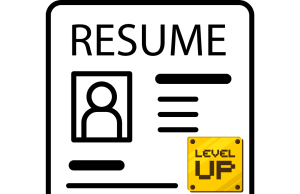In an era defined by dynamic shifts in global industries, few stories resonate as profoundly with the workforce as that of SATS, Singapore’s leading gateway services provider for the aviation sector. The company’s bold move in early 2023 to acquire Worldwide Flight Services (WFS) has not only rewritten the rules of engagement in air travel operations but also transformed the way work across Southeast Asia’s aviation industry is conceived and executed.
The acquisition came at a pivotal moment. As Southeast Asia emerged from the shadow of restrictive global health measures, an anticipated but powerful surge in air travel began rippling through the region. SATS stood ready, strategically positioned to capitalize on this resurgence — a move that quickly turned the company’s revenue trajectory upwards, tripling its earnings in less than a year.
But this isn’t just a story of financial triumph. It’s a narrative about the new realities for millions of workers and the evolution of workplace environments shaped by industry reinvention. With WFS under its wing, SATS integrated operational capabilities spanning cargo handling, ramp services, and airport terminal activities across 22 countries, doubling its global footprint. This expansion not only unlocked economies of scale but also ushered in enhanced career pathways, training programs, and technological innovations that redefined workplace efficiency and employee engagement.
Central to this transformation is the way SATS has adapted to post-pandemic labor demands. The sky-high expectations of operational agility have reshaped HR strategies focused on workforce resilience and digital fluency. As air travel thrived, so too did the need for a workforce nimble enough to navigate unprecedented challenges — from fluctuating passenger volumes to evolving safety protocols.
Beyond numbers and operational metrics lies a subtler, yet equally impactful, revolution: the cultural shift within SATS and its newly integrated teams. This strategic acquisition dismantled silos and fostered cross-border collaboration, inviting a more inclusive and forward-thinking workplace ethos. Employees have found themselves at the crossroads of international best practices and vibrant Southeast Asian markets, creating a melting pot for innovation.
Moreover, SATS’ growth illuminates broader implications for the regional economy. The aviation industry doesn’t just symbolize the movement of people and goods; it reflects the pulse of emerging economies, technology adoption, and interconnected job ecosystems. By catalyzing a rebound in air travel services, SATS directly influences sectors such as tourism, logistics, and technology, indirectly shaping employment landscapes beyond its core operations.
The strategic foresight evident in leveraging the WFS acquisition underscores a critical lesson for work communities everywhere: adaptability and timing are paramount. SATS recognized a unique confluence of factors—rising travel demand, industry consolidation opportunities, and workforce evolution—and acted decisively. The result offers a blueprint showing how companies can harness external market forces and internal talent to accelerate growth while enriching workplace culture.
In an increasingly complex world, the SATS story marks an inspiring example for employees, employers, and policymakers alike. It highlights how industries can rebuild stronger, embrace innovation, and nurture workforces ready to meet tomorrow’s challenges head-on. Southeast Asia’s skies are busier, but it is on the ground—in offices, cargo bays, and training centers—where the real lift-off is taking place.
As the aviation industry continues to soar toward new horizons, SATS’ journey offers an enduring reminder: strategic vision paired with a commitment to empowering work communities can turn industry revival into an inclusive, transformative movement that benefits all.


























